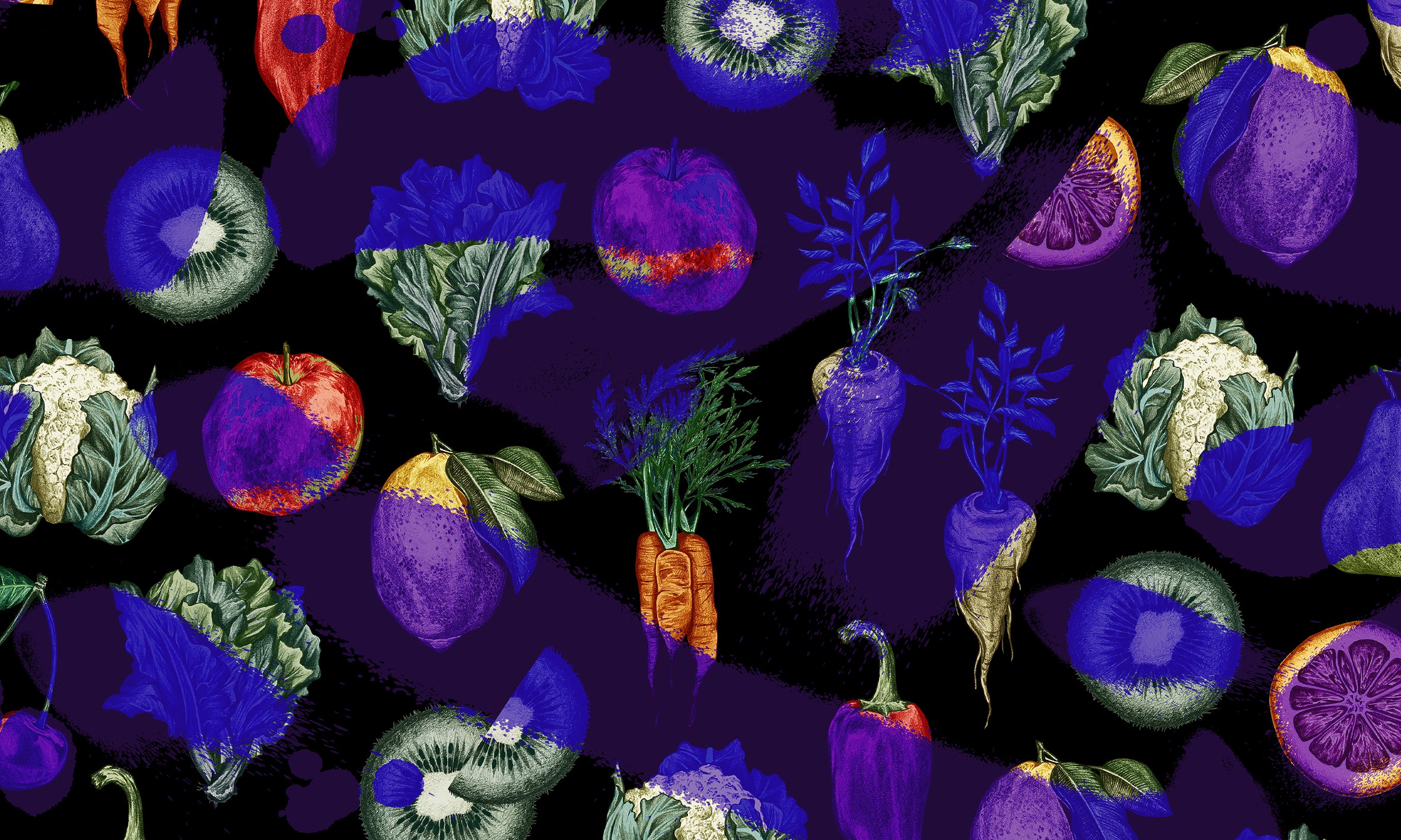Organic

Right from the start of our lives and often without knowing, we are ingesting a large amount of chemicals.
This design is deliciously fruity at first glance, but look a little closer for a visual representation of the safer fresh produce. The more spray passing through the illustration, the higher the amount of pesticide residues found on that type of produce when not shopping organically.
Illustrated in the print from a government report from The Expert Committee on Pesticide Residues in Food (2019) are a whole host of different produce that contains residues at or below the maximum residue limit: Cauliflower 14% Carrots 26% Kiwi fruit 47% Peppers 50% Lettuce 53% Apples 80% Parsnips 87% Oranges 93% Pears 93% Cherries 95% and Lemons and limes 96%.
Pesticides are now in most products, and out of all the produce tested by The Expert Committee on Pesticide Residues in Food, the ones that tested with the highest residues were; Beans with pods, Okra, Rice, Poultry meat and most shockingly, infant formula. It is essential that we have the facts on what we are releasing not just into the environment, but our own bodies!
Pesticides are toxic chemicals designed to be deliberately released into the environment. Although each pesticide is meant to kill a certain pest, a very large percentage of pesticides reach a destination other than their target. Pesticides easily contaminate the air, ground and water when they runoff from fields, escape storage tanks, are not discarded properly, and especially when they are sprayed aerially.
Nitrogen fixation, which is necessary for the growth of many large plants, is hindered by pesticides that can be found in soil. This can lead to a large decline in crop yields. Application of pesticides to crops that are in bloom can kill honeybees, which act as pollinators. This also decreases crop pollination and reproduction.
Although pesticides within food were designed to eliminate risks to the crop and create bigger yields, the use of pesticides decreases the general biodiversity in the soil. Soil quality is higher without chemicals and this allows for higher water retention, necessary for plants to grow.
By purchasing this print you are supporting charity organisations that advocate for better, more sustainable food systems - thank you!
Buy organic produce. This helps farmers to maintain the soil quality and not have to resort back to chemicals. Yes it is more expensive, but there are many reasons why, and showing your support and demand for organic produce makes sure that farmers don’t switch to pesticides to keep up with their competition.
If there is not an option to buy organic, consumers can further limit their intake of pesticide residues by peeling or washing fruit and vegetables, which also reduces other foodborne hazards, such as harmful bacteria.
Eat local, eat in season.
In the PRiF report the conclusion was that 2.2% of the food samples from the UK have residues above the MRL limit, in comparison to 4.6% of the samples from food outside the UK.
Eating food that hasn’t been flown around the world means that it is fresher and doesn’t need to have such a long shelf life - it is very unnatural to have to preserve food for weeks in perfect condition, and it takes a lot of chemicals to do so.
Talk about it. Word of mouth is powerful and the more these subjects are spoken about, the higher up on the agenda they will become.


